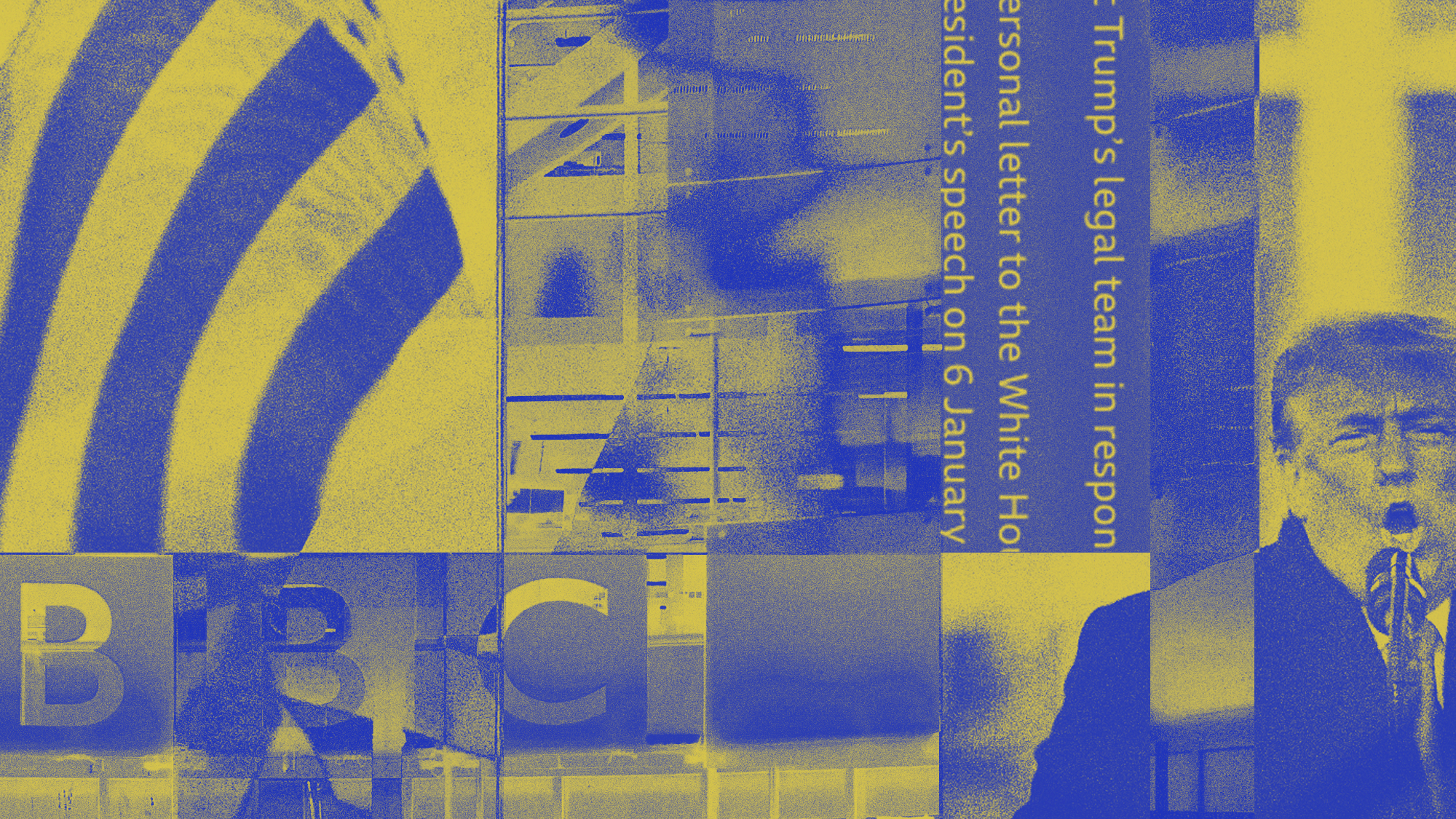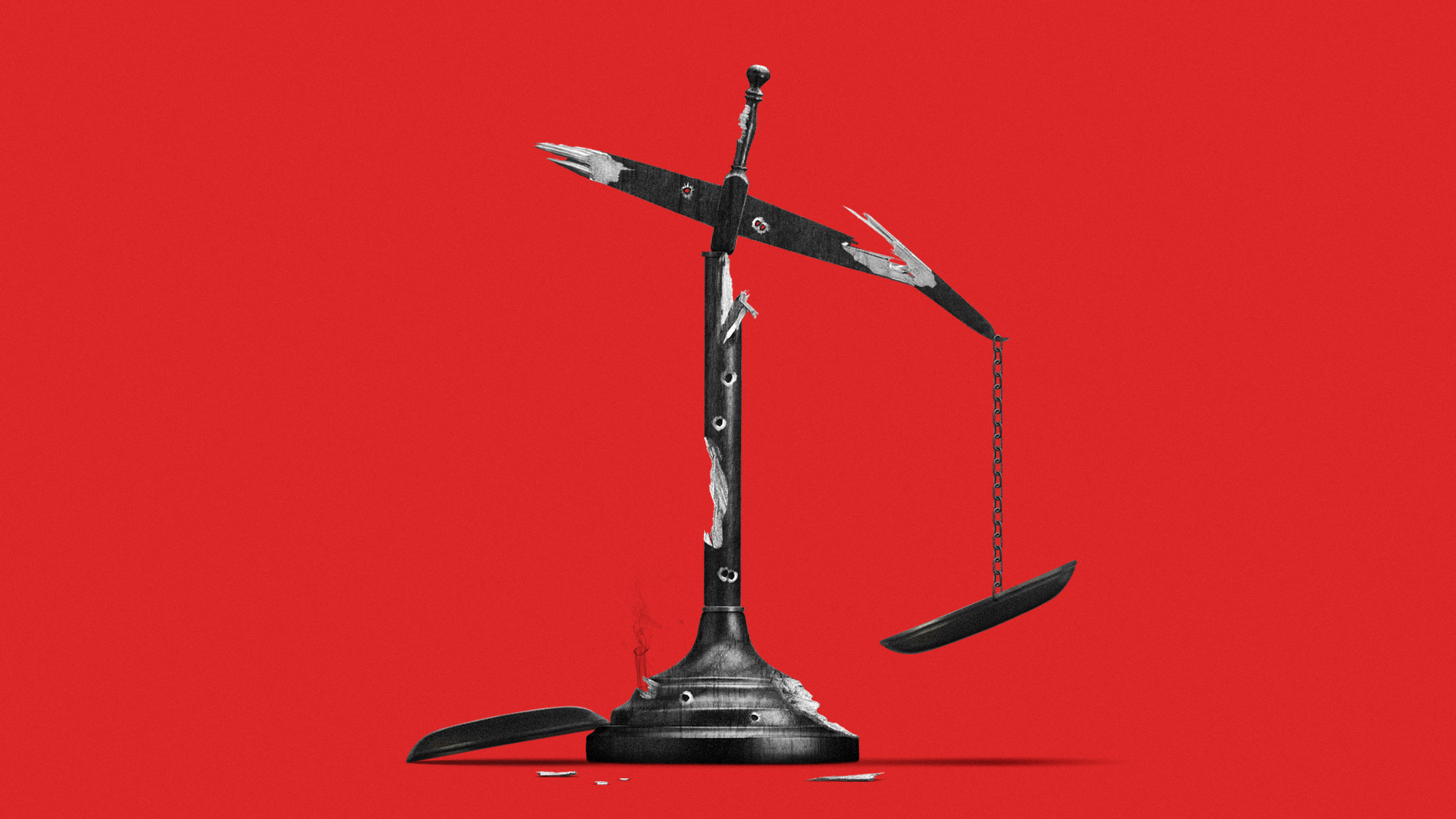A brief history of American isolationism
Donald Trump's vow to put "America First" taps into sentiments that date to the republic's founding. Here's everything you need to know.

A free daily email with the biggest news stories of the day – and the best features from TheWeek.com
You are now subscribed
Your newsletter sign-up was successful
Donald Trump's vow to put "America First" taps into sentiments that date to the republic's founding. Here's everything you need to know:
What is isolationism?
In purest form, it's a nation's total retreat from the world stage. The term, however, usually describes a policy of noninterventionism: avoiding foreign alliances and conflicts, and waging war only if attacked. Much of U.S. history reflects an ambivalent tension between the desire to withdraw from messy foreign problems and the belief America should serve as the dominant force in world affairs — "the indispensable nation," as former Secretary of State Madeleine Albright put it. Isolationist sentiment has ebbed and flowed, often surging during hard economic times or in the wake of costly wars. Donald Trump's promise to put "America First" thus echoes many previous eras in our history, dating back to the Founders.
The Week
Escape your echo chamber. Get the facts behind the news, plus analysis from multiple perspectives.

Sign up for The Week's Free Newsletters
From our morning news briefing to a weekly Good News Newsletter, get the best of The Week delivered directly to your inbox.
From our morning news briefing to a weekly Good News Newsletter, get the best of The Week delivered directly to your inbox.
How were the Founders isolationist?
They saw America's geographical separation from Europe as an ideal opportunity to cultivate the new nation in solitude. "Our detached and distant situation invites and enables us to pursue a different course," George Washington said in his 1796 farewell address. Thomas Jefferson, too, warned against "entangling alliances," though he waged war when North Africa's Barbary pirates started seizing American merchant ships. With the notable exception of the successful 1846–48 Mexican War, which expanded U.S. borders to include California and much of the West, the young nation disdained military adventures in other parts of the world. America does not go "abroad in search of monsters to destroy," Secretary of State John Quincy Adams declared in 1821.
When did isolationism end?
A turning point was the Spanish-American War. During Cuba's revolt against Spain in 1898, President William McKinley sent the battleship Maine on a goodwill visit to Havana — where it blew up in the harbor, killing more than 250 U.S. sailors. Historians now believe an internal explosion destroyed the ship, but at the time Americans — egged on by a jingoistic press — blamed Spain, and the U.S. declared war. After four months, Spain surrendered, ceding Guam, Puerto Rico, and the Philippines to the U.S. The conflict made a national hero and vice president of Theodore Roosevelt, the charismatic leader of the volunteer Rough Riders regiment. When Roosevelt succeeded to the presidency after McKinley's assassination in 1901, he pursued a muscular foreign policy — his credo was "Speak softly and carry a big stick." To promote U.S. interests abroad, he ordered the construction of the Panama Canal and negotiated the end of the Russo-Japanese war. Though sometimes bellicose, says historian Richard Abrams, T.R. also prodded Americans to assume the responsibility "to use their power for good internationally."
A free daily email with the biggest news stories of the day – and the best features from TheWeek.com
What revived isolationism?
Chiefly, it was a horrified response to World War I. The U.S. entered the "war to end all wars" in 1917, unleashing a burst of flag-waving fervor. But the sickening carnage in Europe — 17 million dead and another 20 million wounded — sparked a long period of isolationism. Americans withdrew into the pursuit of money and fun during the prosperous 1920s, and in the Depression-ravaged '30s worried more about putting food on the table than about the rise of militaristic dictatorships in Europe and Japan. President Franklin D. Roosevelt recognized the threat, but could not "control the isolationist Congress," said the late historian Arthur Schlesinger Jr. When war finally broke out in 1939, it "did not destroy isolationism," Schlesinger said. "Rather, it ushered in the most intense and angry debate of my lifetime," and gave rise to the America First Committee.
What did that group believe?
Founded at Yale Law School in 1940, America First argued that the U.S. should not sacrifice the lives of young men to solve European problems. AFC ranks swelled to 800,000, including future President Gerald Ford, Walt Disney, architect Frank Lloyd Wright, and most prominently, hero aviator Charles Lindbergh (see below). The group demanded U.S. neutrality in Germany's war with Britain, advocated a negotiated peace with Hitler, and strenuously opposed FDR's Lend-Lease Act, which sent arms and aircraft to Britain. The peacetime draft, instituted in 1940 to ensure preparedness, was especially polarizing, says Lynne Olson, author of Those Angry Days: Roosevelt, Lindbergh and America's Fight Over World War II. The AFC descended on Capitol Hill, joined by antiwar groups with "Mothers" in their titles. "Dressed in black, many with veils covering their faces, the women made life miserable for members of Congress who were not avowedly isolationist," Olson says. "They stalked their targets, screamed and spat at them."
What happened to the AFC?
It disbanded days after Pearl Harbor. World War II began decades of international engagement, with the U.S. emerging as a superpower. In the Cold War that followed, isolationism receded, though its seeds were preserved by libertarians. After the failure of the prolonged Iraq and Afghanistan wars, and the insecurity bred by the 2008 recession, isolationist sentiments once again swelled — in a 2013 Pew poll, 52 percent of Americans agreed the country "should mind its own business internationally." (Only 20 percent agreed with that statement in 1962.) "What we're seeing today is something like isolationism, but not to the extent of the 1920s and '30s," says political scientist James Meernik. The internet, an increasingly globalized economy, and the international reach of terrorism all make isolationism a much harder sell today, Meernik says. "We can no longer just close up shop and forget the world."
Lindbergh vs. FDR
In this antiheroic age, it may be difficult to grasp the place Charles Lindbergh occupied in American culture. The first person to fly solo across the Atlantic, in 1927, laconic "Lucky Lindy" was an unrivaled idol. He was also the leading voice of isolationism, insisting to huge rallies and radio audiences that the U.S. should not deplete its resources helping Britain against the Nazis. "We must turn our eyes and our faith back to our own country," Lindbergh said. An admirer of German efficiency, he also called Jews a "danger to this country," saying they had too much influence in media and government. Some Republican isolationists pushed Lindbergh to run for president against FDR in 1940. After Pearl Harbor, however, the "Lone Eagle" joined the war effort — and flew 50 combat missions in the Pacific.
-
 ‘Poor time management isn’t just an inconvenience’
‘Poor time management isn’t just an inconvenience’Instant Opinion Opinion, comment and editorials of the day
-
 Bad Bunny’s Super Bowl: A win for unity
Bad Bunny’s Super Bowl: A win for unityFeature The global superstar's halftime show was a celebration for everyone to enjoy
-
 Book reviews: ‘Bonfire of the Murdochs’ and ‘The Typewriter and the Guillotine’
Book reviews: ‘Bonfire of the Murdochs’ and ‘The Typewriter and the Guillotine’Feature New insights into the Murdoch family’s turmoil and a renowned journalist’s time in pre-World War II Paris
-
 Trump vs. BBC: what’s at stake?
Trump vs. BBC: what’s at stake?The Explainer The US president has filed a $10 billion lawsuit over the editing of Panorama documentary, with the broadcaster vowing to defend itself
-
 The Supreme Court case that could forge a new path to sue the FBI
The Supreme Court case that could forge a new path to sue the FBIThe Explainer The case arose after the FBI admitted to raiding the wrong house in 2017
-
 Is international law falling apart?
Is international law falling apart?Today's Big Question Conflict in Gaza is testing the strength of the two intergovernmental courts in The Hague
-
 E-cigarette company Juul to pay $462M to settle youth vaping lawsuits
E-cigarette company Juul to pay $462M to settle youth vaping lawsuitsSpeed Read
-
 In the future, will the English language be full of accented characters?
In the future, will the English language be full of accented characters?The Explainer They may look funny, but they're probably here to stay
-
 10 signature foods with borrowed names
10 signature foods with borrowed namesThe Explainer Tempura, tajine, tzatziki, and other dishes whose names aren't from the cultures that made them famous
-
 There's a perfect German word for America's perpetually enraged culture
There's a perfect German word for America's perpetually enraged cultureThe Explainer We've become addicted to conflict, and it's only getting worse
-
 The death of sacred speech
The death of sacred speechThe Explainer Sacred words and moral terms are vanishing in the English-speaking world. Here’s why it matters.